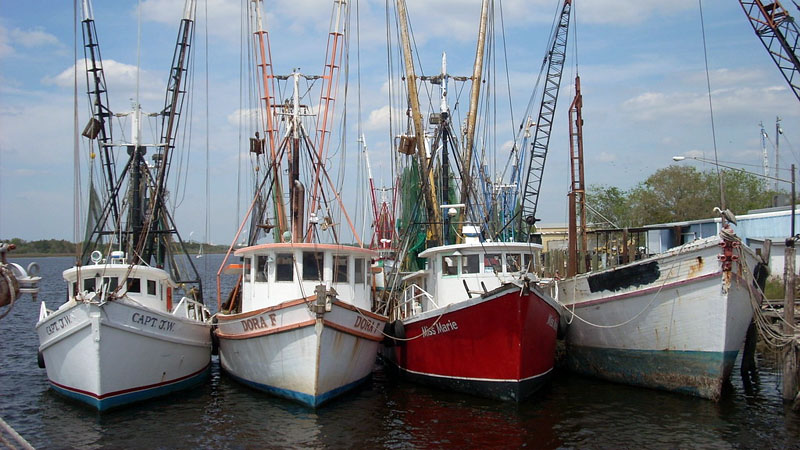Exclusive content

Shrimp are a staple of Georgia’s coastal cuisine, often celebrated in local festivals and featured prominently on restaurant menus. Yet a recent genetic testing study in Savannah has uncovered a startling fact: 34 out of 44 restaurants tested were serving foreign shrimp, not the local variety. This revelation highlights a broader crisis facing Georgia’s shrimp industry, which is grappling with both economic and environmental challenges.
The industry is in decline, with only a couple hundred active shrimp boats remaining in Georgia, a sharp drop from the thousands that once plied the state’s waters. This decline is mirrored across the south Atlantic states and the Gulf of Mexico, where shrimpers struggle to compete with cheaper foreign imports. In response, State Rep. Jesse Petrea, a Republican from Savannah, sponsored a bill this year to require restaurants to disclose the origin of their shrimp. “You got pictures of shrimp boats on the wall, and you’re serving Indian shrimp,” Petrea remarked, underscoring the disconnect between local branding and the reality of the product served.
Legislative Efforts and Economic Realities
Petrea’s bill, which did not pass this year but is expected to be reintroduced, aims to boost the local industry by increasing transparency. However, the challenges extend beyond labeling. Packing houses, crucial for processing and distributing shrimp, are closing down, leading to a loss of dock access for shrimpers. “A lot of the shrimpers are losing dock access. They don’t have a place to unload,” said Charlie Phillips, who owns a seafood packing operation and a restaurant in Townsend, Georgia. This loss of infrastructure further exacerbates the industry’s struggles.
Moreover, the Trump administration’s tariffs on imported shrimp, intended to protect domestic producers, may not provide the relief hoped for. Phillips expressed skepticism, noting that foreign shrimp would still be cheaper than domestic alternatives. “For the most part, the customers are going to pay the price,” he said, suggesting that tariffs might not significantly alter consumer behavior or market dynamics.
The Threat of Black Gill Disease
Compounding these economic woes is the emergence of black gill disease, a condition affecting shrimp populations since the 1990s. Marc Frischer, a professor at the University of Georgia’s Skidaway Institute of Oceanography, explained that the disease is caused by a microorganism known as a ciliate, which has likely always been present but has become more problematic due to climate change. “What’s happened in the shrimp here, black gill, we’re going to see a lot more stories like that in many, many more species,” Frischer warned.
Despite the prevalence of black gill, Georgia’s shrimp population appears to be holding steady, with catch numbers per boat remaining consistent. However, the disease does seem to be impacting the summer stock of brown shrimp, one of the two main species caught in the region. Frischer emphasized the need for faster scientific research to address such emerging diseases, noting that the decades-long gap between the outbreak and understanding of black gill is too slow in the face of ongoing climate change.
A Call for Action
The plight of Georgia’s shrimp industry underscores the complex interplay between globalization, environmental change, and local economies. While legislative efforts like Petrea’s bill aim to support domestic producers, the industry faces systemic challenges that require multifaceted solutions. As climate change continues to alter marine ecosystems, the need for rapid scientific response and sustainable practices becomes ever more critical. For now, Georgia’s shrimpers and the communities that rely on them must navigate a precarious path, balancing economic survival with the realities of a changing world.